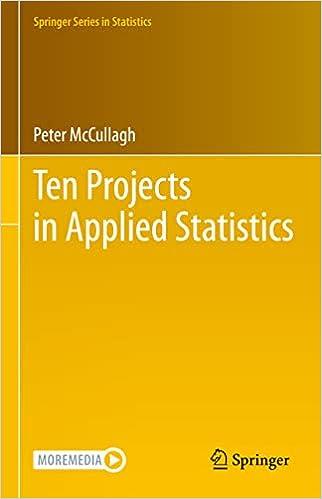Suppose that (Y_{1}, ldots, Y_{n}) are independent and identically distributed with density (m(y)). Ignoring the error term,
Question:
Suppose that \(Y_{1}, \ldots, Y_{n}\) are independent and identically distributed with density \(m(y)\). Ignoring the error term, show that the maximum-likelihood estimate of the mixture fraction is zero if \(\sum \zeta\left(y_{i}ight) \leq n\), one if \(\sum 1 / \zeta\left(y_{i}ight) \leq n\), and otherwise is a point \(0<\hat{ho}<1\) satisfying
\[
\sum \frac{\zeta\left(y_{i}ight)-1}{1-\hat{ho}+\hat{ho} \zeta\left(y_{i}ight)}=0
\]
Hence or otherwise deduce that the maximum-likelihood estimate of the mixture satisfies the self-consistency condition
\[
\sum \frac{\psi\left(y_{i}ight)}{\hat{m}\left(y_{i}ight)}=\sum \frac{\phi\left(y_{i}ight)}{\hat{m}\left(y_{i}ight)}=n
\]
In what sense does this equation imply self-consistency?
Fantastic news! We've Found the answer you've been seeking!
Step by Step Answer:
Related Book For 

Question Posted:





